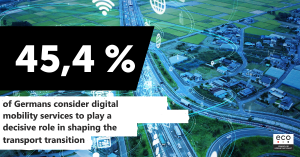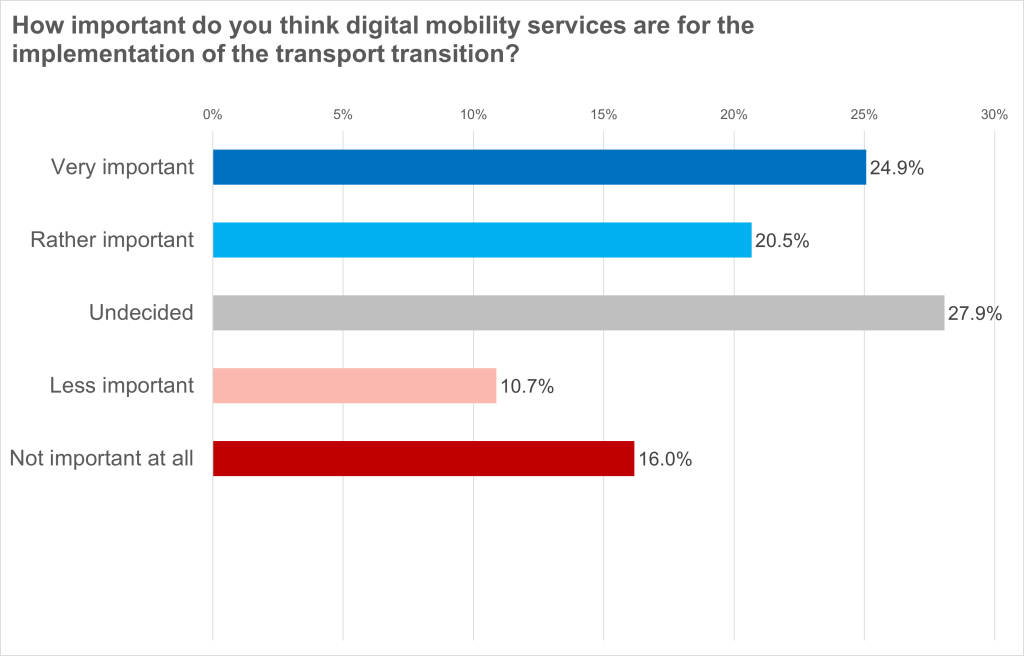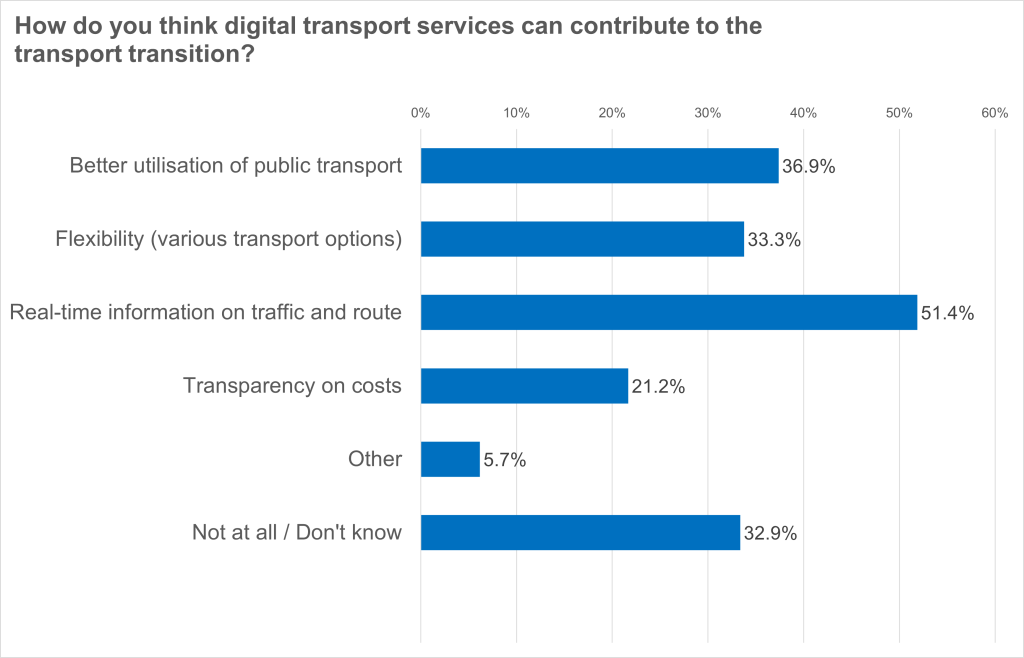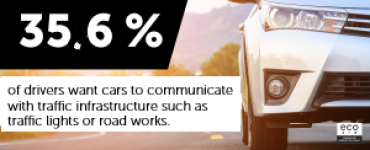eco Chair of the Board Süme: “Sustainable and innovation-driven progress in the mobility sector is almost impossible without meaningful data and its availability and interconnection”
- 45.4 per cent of Germans rate digital mobility services as crucial for the transport transition
- More than half of Germans (51.4 per cent) are convinced that, in particular, digital traffic services which provide data and information on the traffic situation in real time have a positive influence on the traffic turnaround
- Publication of German-language guideline paper: eco calls for better availability of mobility data and clear legal framework for data sharing and data use in the mobility sector
- Podcast episode on the IAA (International Automobile Show) from the German-language eco Podcast “Das Ohr am Netz” (An Ear to the Internet) focuses on mobility of the future
Digital services and technologies are the driving thrust for the transport turnaround. 45.4 per cent of Germans attribute a decisive role to digital mobility services in shaping the traffic turnaround. The respondents place great hope above all in artificial intelligence and thus intelligent traffic management. More than half of the respondents (51.4 per cent) believe that the provision of real-time data on the traffic situation will make a positive contribution to the traffic turnaround. 36.9 per cent hope in particular for better utilisation of public transport through digital services. These are the results of a survey conducted among 2,500 people at the end of July 2023 by the opinion research institute Civey on behalf of eco – Association of the Internet Industry. The survey was undertaken to mark the occasion of the IAA (International Automobile Show) at the beginning of September.
“One of the factors that the survey results clearly indicate: digital technologies and services are part of the solution to accelerate the transport turnaround and therefore alleviate the burden on citizens, the environment and transport infrastructures,” says Oliver Süme, eco Chair of the Board. This year’s IAA bears the motto “Experience Connected Mobility” – but there is still a long way to go in Germany. The main reason for the lack of speed on the road to smart, sustainable mobility is that companies and consumers still have reservations and uncertainties about sharing mobility data. For example, it is still unclear whether the sovereignty over the data of interconnected vehicles lies with manufacturers, vehicle owners or possibly also the users, and there is also a lack of knowledge of legally secure options for anonymising personal data. “Mobility data forms the basis for mobility platforms that provide information, for example, on the utilisation and availability of means of transport, or that optimally control traffic flows and provide corresponding answers to increasing urbanisation and changing mobility needs. Sustainable and innovation-driven progress in the mobility sector is almost impossible without meaningful data and its availability and interconnection,” warns Süme.
Future of mobility: eco calls for better availability of mobility data and a clear legal framework for data sharing and data use in the mobility sector
On the occasion of the IAA Mobility 2023, the eco Association has now published its call and recommendations for action to policymakers in a guideline paper to pave the way for the digital transformation of the mobility ecosystem and to accelerate the transport turnaround. What is required at present is a transparent legal framework for mobility data and uniform data standards, as well as a greater amount of available data. The public sector in particular must take on a pioneering role here. “The data inventories of the public sector and municipal transport companies are of enormous significance for smart city projects and interconnected mobility. In order to improve the availability of this data, there needs to be a legal right for Open Data on the part of the public sector and better technical and personnel resources for the municipalities,” says Süme.
In order to fully exploit the potential of mobility data, the necessary infrastructure must also be created and expanded in order to be able to process the corresponding data volumes. This applies to the gigabit infrastructure, storage capacities in data centres, and smart transport infrastructures. In this regard, Germany still has a lot of ground to cover. The complete German-language guideline paper is available for download free of charge.
Further information on the topic of mobility
Survey results as a graphic for free editorial use:
How do you think digital transport services can contribute to the transport revolution?






